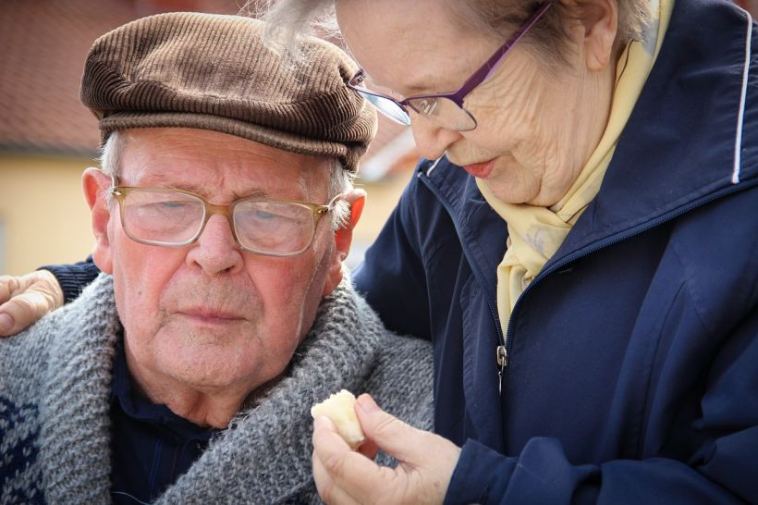- Like
- SHARE
- Digg
- Del
- Tumblr
- VKontakte
- Flattr
- Buffer
- Love This
- Save
- Odnoklassniki
- Meneame
- Blogger
- Amazon
- Yahoo Mail
- Gmail
- AOL
- Newsvine
- HackerNews
- Evernote
- MySpace
- Mail.ru
- Viadeo
- Line
- Comments
- Yummly
- SMS
- Viber
- Telegram
- JOIN
- Skype
- Facebook Messenger
- Kakao
- LiveJournal
- Yammer
- Edgar
- Fintel
- Mix
- Instapaper
- Copy Link
Introduction
Most of us want to stay in our homes, together with the whole family for as long as we can. Sadly, when reality hits, aging and health concerns will drive us to move out and live in a senior living facility to get the assistance we need. But the idea of moving to a nursing home is something that requires a careful decision. As a family, we want to ensure that we give our senior loved ones the best care to meet their basic requirements.
Evaluating a senior love one’s abilities, needs, and living arrangements is a continuous process. Many resources are available to satisfy their changing concerns and priorities, from living independently, assisted living, to nursing facilities. Each option has something unique to offer, so people take their time to consider the best senior care options that work for their loved one.
With the number of senior care providers around the country, it’s tough to stay afloat in the competition. These providers provide a wide variety of services, from medication management, personal assistance, health assessments, and recreational activities. If you want to ensure the best care delivery for your senior clients and attract more patients, here’s what clients are looking for senior care services.
Safety
Safety is always a priority when looking for senior care services—a critical factor in preserving a senior’s well-being. We’re talking about the senior’s security from internal concerns and the outside world.
Wrongdoing and mistreatment can potentially happen if no one is around. State offices have records of offenses, crimes, and reprimands related to senior care. The records help clients do a background check when finding the right care provider for their senior loved one.
In this case, senior care services should hire caregivers and staff who are in a good physical and mental state to support older adults. Besides their skills and knowledge in senior care, it’s important to evaluate if they have any mental health concerns that may affect their care delivery and how they interact with seniors. One way to do this is to conduct in-depth psychological interviews and tests.
The director or administrator should establish security features and policies when it comes to hiring policies and service delivery. This is very important if you have clients with special needs and require close attention. You want to ensure the clients receive regular, quality care.
Professionalism and Commitment
Seniors and their families look for services that are knowledgeable, experienced, and professional. Most care providers conduct a comprehensive interview procedure to determine which candidates have a higher level of dedication in this line of work.
Commitment to service is a critical factor when families decide on an ideal eldercare service. Providers should match the caregiver with a senior, depending on their interests and personalities. This helps in establishing harmonious relationships between the senior, caregiver, and the family themselves.
Creativity and Compassion
Creativity and compassion are two of the most desired traits of a senior caregiver. Caregivers must be naturally caring and compassionate and have proper care training. The caregiver should also exhibit a higher level of respect for senior clients and exert efforts in improving the quality of life of every senior client.
Creativity is also a must for senior caregivers. Having this trait allows the caregiver to create a healthy environment where the senior can lead a cheerful and active life, a crucial factor in improving the senior’s physical health and mental well-being.
Diversity of Services
While most care providers provide long-term care, many of them offer a variety of healthcare and social services. To meet the needs of senior clients, care providers should focus on providing services that seek to improve quality of life. One example is the diversity of meal options and special dietary needs. The provider should be knowledgeable on providing nutritious meals and snacks for the seniors while considering their dietary intake.
Care providers should also be knowledgeable in planning and selecting social activities. Most senior living communities provide enrichment-oriented programming, where clients can customize their activities depending on their interests and hobbies.
A great tip is to provide a good mix of social, spiritual, and physical activities so seniors can be both physically and mentally healthy. This can take the form of gardening, games, hiking, yoga, and parties. The activities may vary depending on the venue, so make everything is safe and secure for senior clients.
Conclusion
Every older adult has unique needs concerning their physical health, social life, safety, and mental well-being. With so many needs to meet, their families want to ensure they find the best living arrangements for their senior loved ones. For these reasons, eldercare administrators and staff should improve the quality and delivery of care for their clients.


